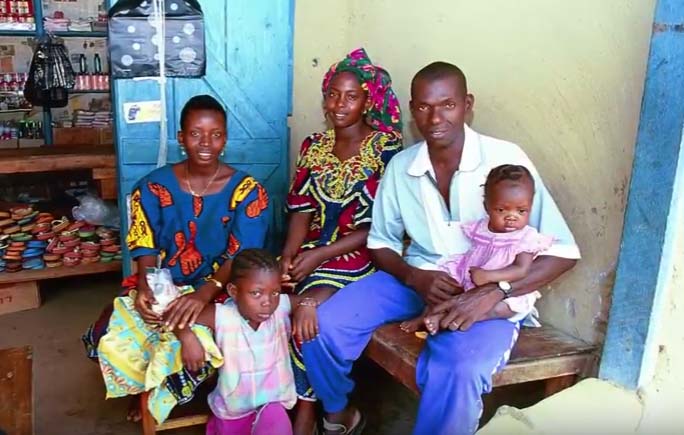Scientists as advocates: Behind the bench, in front of the camera
|

A scientist has a mandate: objective, data-driven fact-finding; research with an open mind and a solid protocol. But a scientist is more, too. Behind the standards of practice and quality control checks are life experiences, a full range of emotions, motivations, and passions. Scientific evidence is key to confirming unequivocally that diarrhea still sickens and kills too many children; chronic illness stunts growth and development; and vaccines can prevent severe disease. But in telling the story of diarrheal disease - as a complement to figures, findings, and data points - we wanted to explore that other side of science, to get at the human stories behind these stats. We asked a few researchers to reflect.
Dr. Deborah Atherly studies the cost-effectiveness of vaccines against rotavirus and other child health threats. Her findings tell of life-years lost to disability from repeated illness; she investigates the burden of health care costs on poor families. Beyond the numbers, we asked Debbie, what does this cost burden mean for a family?
“That might mean one less meal with protein for the family… that school fees can't be paid for one of the children in the household,” she shared. “Those small amounts can have a tremendous impact on a family.”
Dr. Richard Rheingans builds statistical models to parallel the potential impact of vaccine introduction with patterns of immunization coverage in poor countries. His research demonstrates that recognizing disparities in access across different communities is an important consideration for maximizing the benefits of and achieving the greatest return on investments in vaccines. When we asked him to reflect on his motivation in teasing out these complex calculations, Rick told us “It's about making a difference for families that might otherwise be ignored. I'm passionate about data that helps decisionmakers, funders, governments, families make decisions that will improve life for kids who would otherwise be marginalized.”
As a researcher and a clinician, Dr. Roma Chilengi has not only evaluated the health and development of children in his community through routine care and wellness checks, he also partners with international teams to evaluate new vaccines that could mean the difference between life and death for these and millions more children. Roma has served as both chief medical officer and chief research officer at the Centre for Infectious Disease Research, Zambia. He shared his perspective on the the very real, lasting power of vaccines and immunization. “If you look historically on the fight against infectious diseases, where there has been remarkable progress for the developing country setting, it's really with the help of vaccines. In developing countries, the health systems are so weak that even preventable diseases have a big toll on the population. But when you vaccinate a child, they are basically empowered to live on and meet whatever illness and survive it.”
These scientists had compelling stories to share, and we believe that behind every protocol and methodology, underneath each result, there are many different human stories; not only among the beneficiaries of advances in global health, but in spotlighting the people who dedicate their careers to finding ways to maximize those benefits, as well.
Spotlights are tough for anyone unaccustomed to them! (Us included.) And we are so grateful for the partners and colleagues who have allowed us to turn a spotlight--and sometimes even a video camera—on them to help tell stories of defeating diarrhea. With so many great minds working on this crucial cause, we're excited to continue exploring this avenue.
For now, we invite you to hear more from Drs. Atherly, Chilengi, and Rheingans in a new video, sharing their perspectives and expert knowledge about the tangible impact that repeated, chronic illnesses like diarrhea have on families where poverty and pathogens are ever-present—and the motivation for their research on solutions to best relieve those burdens.
We loved Roma's take on why it's so important to apply his expertise and experiences to protect the lives of vulnerable children, as both a scientist and an advocate. “We cannot just accept what is,” he declared. “We have enough knowledge and ability to say ‘no' to some things, and not just to say ‘no' but to be able to do something about it; to fight to make a difference.”














